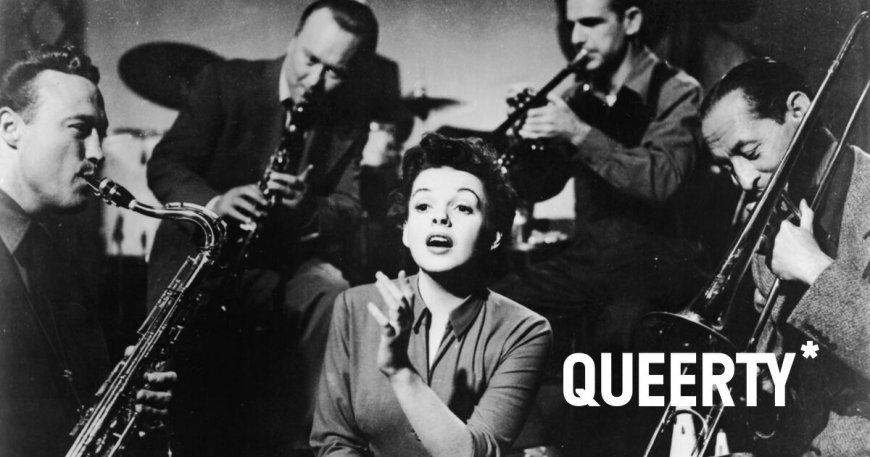LISTEN: How Judy Garland’s lovelorn ballad gave the gays their own torch song
We can all relate to this classic from the 1954 'A Star is Born.'


Did you know A Star is Born birthed a swaying torch song that doubles as gay anthem?
No, not *that* A Star is Born. And not that one either. We’re talking about “The Man That Got Away” from the 1954 iteration starring Judy Garland and James Mason.
Esther Blodgett (Garland) is an aspiring singer and actress who falls for the established Norman Maine (Mason). Though his introduction (and suggested stage name) lead to success in silver-screen musicals, his alcoholism and their doomed romance take a toll on her career. However, this slow burning ballad finds us at a happier place in their love story: the moment we realize how much raw talent this rising star wields.
The club has closed its doors for the evening. All that remains is stale cigarette smoke, stacked up chairs, and the night’s musicians. As Maine sneaks in, Blodgett and the band decide to do one more, and Garland gives a commanding and impassioned performance — just for them. Within the opening bars (“The night is bitter / The stars have lost their glitter,” she croons), it’s full-on goosebumps.
The combo of the song (written by Harold Arlen and Ira Gershwin) and direction from gay filmmaker George Cukor (who painstakingly redid the sequence multiple times to get its single shot just right) made it one of the biggest moments of the film — and cinema history at large. The American Film Institute even dubbed it the 11th best movie song of all time in 2004.
But there’s a number of reasons why the track has become a gay anthem. For one, it involves Judy Garland, The Mother Gay Icon Supreme. And secondly, its longing lyrics seamlessly apply to any gay man who’s felt heartbreak at the hands of another: “The man that won you / Has run off and undone you / That great beginning / Has seen its final inning / Don’t know what happened / It’s all a crazy game.”
It makes us want to grab a lighter — and vodka tonic — and sway along.
“The Man That Got Away” even got a second life in 2019, on the heels of Renée Zellweger’s Oscar-winning performance in Judy. Shortly after its release, Universal Records dropped a club remix from house legend Eric Kupper (who’s also worked with greats like Diana Ross, RuPaul, and Gloria Gaynor).
The song peaked at No. 10 on the Billboard Dance Club Songs chart, giving Garland her first-ever club hit. We’d like to imagine that she would’ve been telling off messy men on the dance floor alongside us if she could’ve been.
While every generation has gotten their own A Star is Born, this ballad has outlived the era of Garland’s film. Gay icons like Cher, Barbra Streisand, Idina Menzel, and Kristin Chenoweth have all spun tales of unrequited love with their own live performances.
Billy Porter also performed the song during an especially tear jerking scene in Pose Season 2. As his character Pray Tell lays up in the hospital, suffering from issues with his medication for HIV, a vision of his departed lover Costas inspires him to keep going.
Donning a shimmering suit, Porter serenades an audience of LGBTQ+ people also fighting for their lives in the hospital. He gives a show-stopping and emotional cabaret rendition — even if only in his mind. The venue and circumstance bring new meaning, as angst and grief inform how he reminisces on his lost lover: “Ever since the world began / There is nothing sadder than / A one-man man / Looking for the man / That got away.”
All at once, this Pose moment highlighted why Judy Garland was a gay icon, the way this track applied to a generation of LGBTQ+ people, and how it became a club hit decades later: at times of adversity, the gays turn to music to heal and transport us. And when it comes to a lovelorn ballad, we can always relate.

 Mark
Mark 





